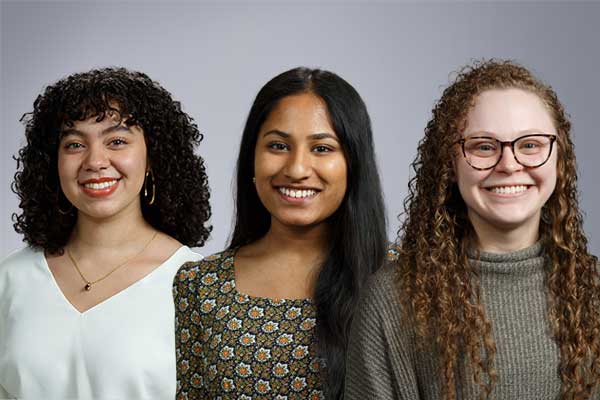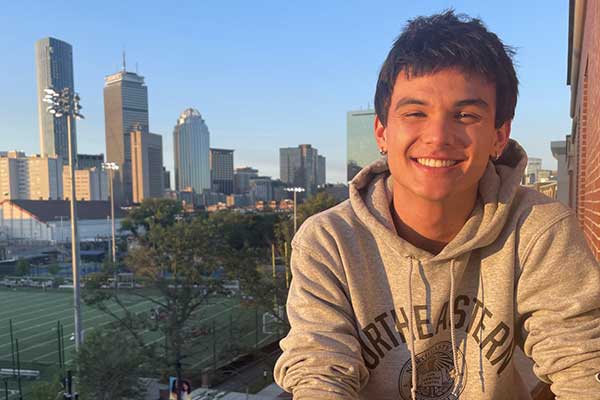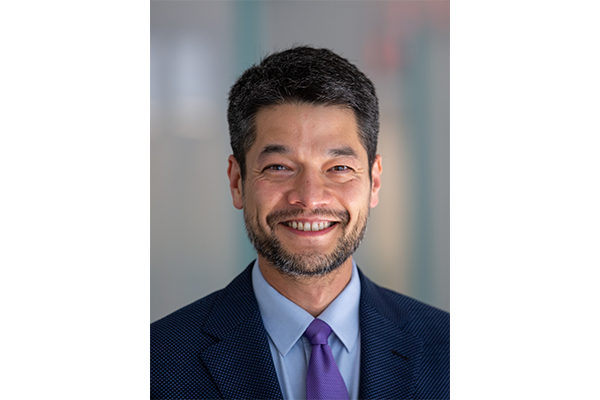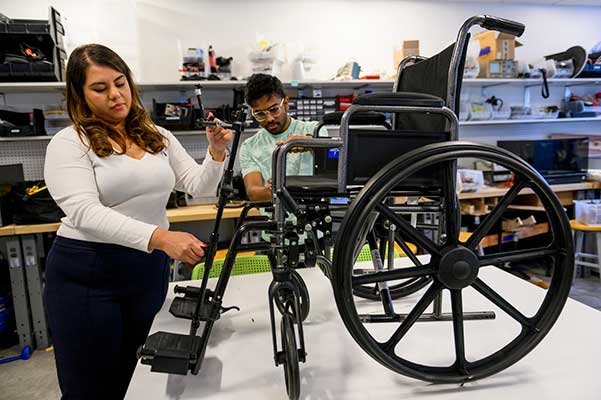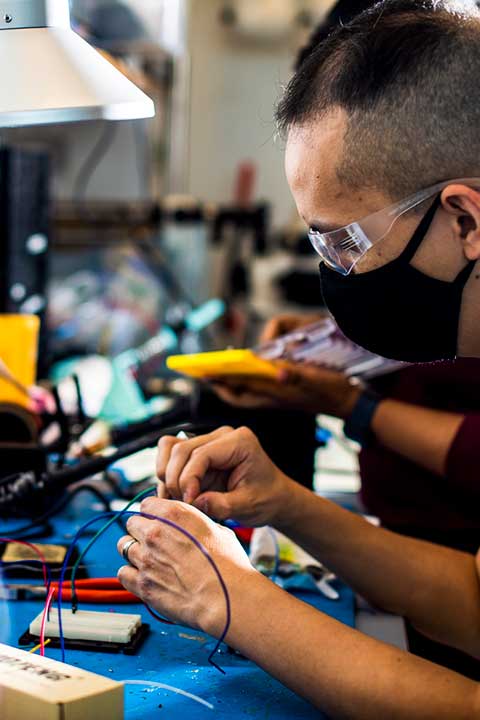
Bachelor of Science in Electrical & Computer Engineering
Bachelor of Science in Electrical & Computer Engineering
Overview
The electrical and computer engineering combined major program prepares students for careers in diverse fields from medicine, to law, business and more. The discipline is based on three technical foundations: physics (encompassing circuits, semiconductor devices, and optical systems), computers (including microprocessors and computing devices), and Math (dealing with information, networks, and systems).
Innovative Curriculum
Students may choose to major in both electrical and computer engineering by following the combined-major program leading to a Bachelor of Science in Electrical Engineering or Bachelor of Science in Computer Engineering. Students take the required courses for both majors along with technical electives distributed among the areas of computer engineering; fields, waves, and optics; signals and systems; power engineering; and electronic circuits and devices.
Students have the option of selecting from several minors to complement their degree and personalize their path. Students can select from minors in the department, in other engineering departments, or from across the university.
The Accelerated Master’s Degree PlusOne program allows current undergraduate students to accelerate the attainment of the master’s degree by applying graduate credits taken as an undergraduate toward both the undergraduate and graduate degrees. Current students apply to enroll in the PlusOne program. Students attain their bachelor’s degree followed by a PlusOne year to complete the master’s degree.
Students currently earning a BS in Electrical and Computer Engineering can select from the PlusOne pathways available for BS in Electrical Engineering students.
Experiential Learning
Experiential learning is the heart of a Northeastern education, combining rigorous coursework with hands-on experience in the classroom, in the lab, and in the field—locally and abroad. With our signature cooperative education (co-op) program, students typically gain six months of work experience integrated as part of the educational program. Both five-year, three-co-op and four-year, two-co-op program options are available.
Academic Advising
For support with academic questions, contact the academic advisor assigned to this program.
Admissions & Aid
Ready to take the next step? Review Degree Requirements to see courses needed to complete this degree. Then, explore ways to pay for your education. Finally, review Admissions Information to see our deadlines and gather the materials you need to Apply.
Student Experiences
Professional Licensure: If looking for information on obtaining Professional Licensure, visit the Professional Licensure Disclosure Page or contact the Associate Dean for Undergraduate Education, Susan Freeman, at s.freeman@northeastern.edu.
